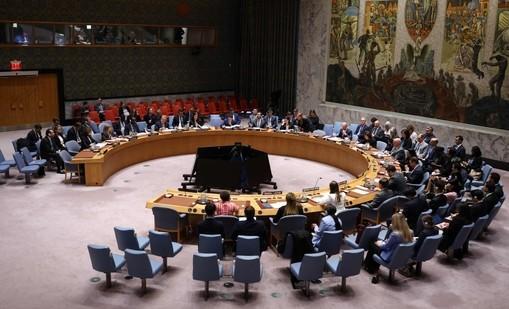
Was LeT involved? UNSC asks Pak on J&K attack, refuses to accept ‘false flag’ claim
The United Nations Security Council (UNSC) has been in the news lately for its response to the recent terrorist attack in Pahalgam, Jammu and Kashmir. The attack, which occurred on October 11, targeted a tourist bus and left several people injured. The incident has sparked outrage and concern globally, with many countries calling for a strong response to terrorism.
Pakistan, which has long been accused of supporting and harboring terrorist organizations, has been at the center of the controversy surrounding the attack. In a surprising twist, Pakistan has claimed that the attack was a “false flag” operation, designed to discredit the country and justify military action against it.
However, UNSC members have refused to accept this narrative, and instead have questioned whether the terrorist outfit Lashkar-e-Taiba (LeT), which is based in Pakistan, was likely to be involved in the attack. LeT has been responsible for numerous terrorist attacks in the past, including the 2008 Mumbai attacks that killed over 160 people.
The UNSC meeting, which was held behind closed doors, was requested by Pakistan in an attempt to clarify the situation and shift the blame away from itself. However, UNSC members were not convinced by Pakistan’s arguments and instead demanded more information and evidence to support its claims.
One of the key points of contention was the targeting of tourists on the basis of religion. The attack on the bus in Pahalgam was seen as a clear example of religiously motivated terrorism, and UNSC members were quick to point out that this was a worrying trend.
According to reports, some UNSC members brought up the fact that the attack was carried out in a tourist area, and that the victims were predominantly Hindu pilgrims. This, they argued, suggested a clear bias towards targeting people of a particular religion.
Pakistan, on the other hand, has maintained that the attack was not motivated by religious hatred, but rather by a desire to disrupt the economic and tourism industry in Jammu and Kashmir. However, this explanation has been met with skepticism by many, who point out that similar attacks have been carried out in the past with the aim of creating fear and uncertainty among tourists.
The UNSC’s refusal to accept Pakistan’s “false flag” narrative is a significant development in the ongoing tensions between Pakistan and India. The two countries have a long history of conflict and mistrust, and this latest incident has only served to further escalate the situation.
For its part, India has been quick to condemn the attack and to point out that Pakistan has a long history of supporting and harboring terrorist organizations. India has also called for international pressure to be brought to bear on Pakistan to stop its support for terrorism.
The UNSC’s response to the attack is a significant blow to Pakistan’s efforts to shift the blame away from itself. The organization’s refusal to accept Pakistan’s claims has sent a clear message that the international community will not tolerate support for terrorism, and that those who engage in such activities will be held accountable.
In conclusion, the UNSC’s response to the Pahalgam attack has sent a clear message that the international community will not tolerate support for terrorism. The organization’s refusal to accept Pakistan’s “false flag” narrative has highlighted the country’s long history of supporting and harboring terrorist organizations, and has called into question its commitment to fighting terrorism.
As the situation continues to unfold, it is clear that the international community will be closely monitoring the situation and will be demanding action from Pakistan to stop its support for terrorism. It is only by working together and holding terrorist organizations and their supporters accountable that we can hope to create a safer and more peaceful world.
News Source:
https://x.com/ANI/status/1919603387328340406



